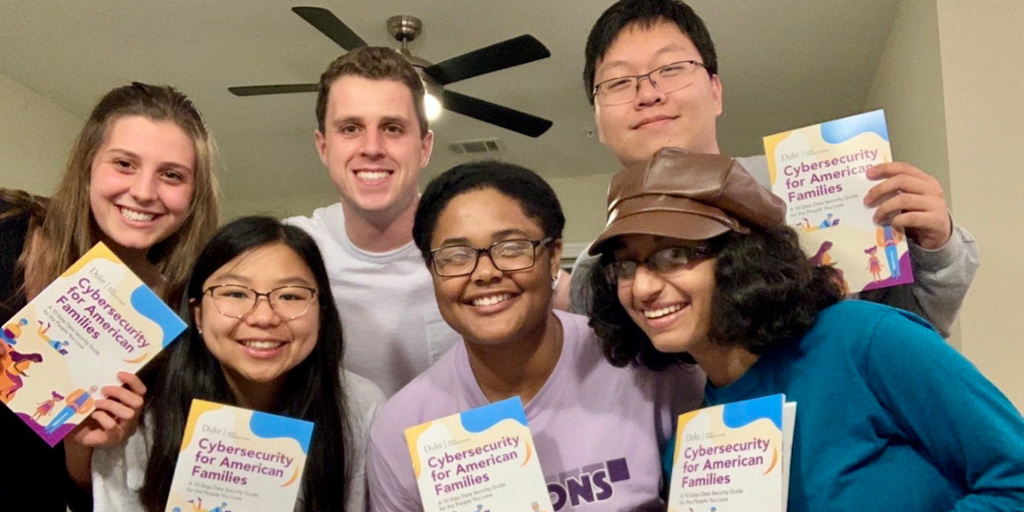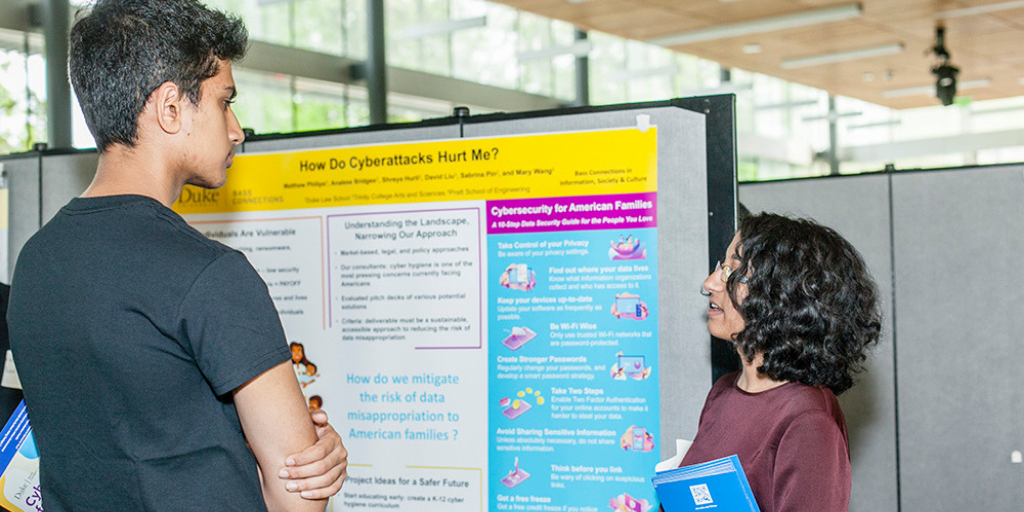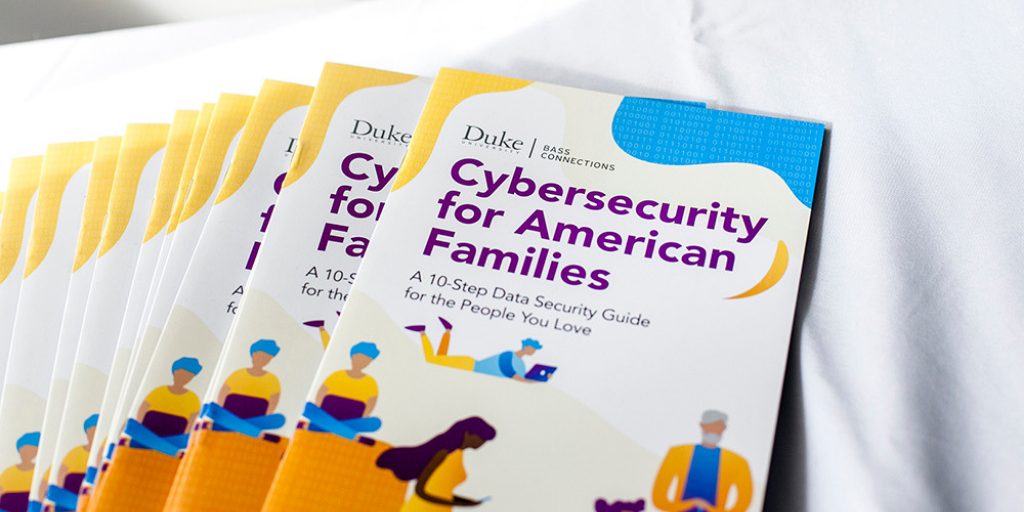Team Creates User-friendly Resources to Help Families Avoid Cyberattacks
August 12, 2019
By Matt Phillips (J.D. ’20)

When I was applying to law schools, I always knew that I wanted to end up somewhere with a tight-knit, collaborative and engaged community. I eventually decided to attend Duke Law because it offered exactly that, with opportunities to work closely with faculty and students outside the classroom to effect change in the wider world.
My interest in collaborative, meaningful work is also what led me to join the How Do Cyberattacks Hurt Me? Bass Connections team at the beginning of my 2L year. Like many of my teammates, I had become accustomed to hearing news reports about data breaches and other cybersecurity threats, but I still didn’t understand why these threats mattered—or if it was even possible to do anything about them. Our team set out to answer these questions.
During our first semester working together, we focused on understanding the ways in which cyberattacks cause harm in American society. We studied the national security implications of cyberattacks on the country’s infrastructure, for instance, and the effects that breaches of personally identifiable information (social security numbers, credit card numbers, etc.) can have on the financial wellbeing of everyday Americans. Throughout this process, we consulted with cybersecurity experts from across the country, who shared their insight on potential legal, technological and market-based ways of preventing these harms.
Throughout this process, we consulted with cybersecurity experts from across the country, who shared their insight on potential legal, technological and market-based ways of preventing these harms.
It was during this time that I began to fully appreciate the educational power of the Bass Connections model. Like all Bass Connections teams, our group was interdisciplinary; it was comprised of undergraduates, graduate and professional students and faculty from schools and programs throughout campus. This diversity of expertise and experience enabled us to develop a more complete and nuanced understanding of cybersecurity issues than we would have developed otherwise.

For example, the computer science experts in our group helped to explain why there are no technologies that can completely eliminate the risk of cyberattacks. Our economics students, on the other hand, discussed cybersecurity insurance and other potential market-based solutions to our problem. And as a law student, I tried to explain why suing cybercriminals in court is not always a viable option. Through this collaborative process, we gradually identified the best ways to prevent cyberattacks and limit their harm on American society.
This diversity of expertise and experience enabled us to develop a more complete and nuanced understanding of cybersecurity issues than we would have developed otherwise.
We ultimately decided that our work could be most impactful if we focused on cybersecurity at an individual level. Our research revealed that there are easy ways for Americans to protect themselves from cyberattacks, but that they often fail to do so because it seems too complicated or overwhelming. We could not find any resources that made cybersecurity seem simple and approachable, so we decided to create one ourselves.

Cybersecurity for American Families: A 10-Step Data Security Guide for the People You Love is the culmination of our work as a team. It is a 12-page resource designed to make cybersecurity more accessible, even to those who are not technologically savvy. We also created a website designed to complement our guide, which includes a series of informational videos.
None of this would have been possible without the Bass Connections program. It provided us with an opportunity to work across disciplines to solve a complex and multifaceted problem and to develop a meaningful solution to that problem—one that has the potential to have tangible benefits in the real world. It is exactly the type of opportunity that I had been looking for when I decided to apply to Duke in the first place: to take my education beyond the classroom to make a difference in the wider world.
Learn More
- See which 2019-2020 project teams are still recruiting student team members, and apply by August 22.
- Browse stories from students about their Bass Connections experiences.
- Explore the benefits of participation in Bass Connections for graduate and professional students.
